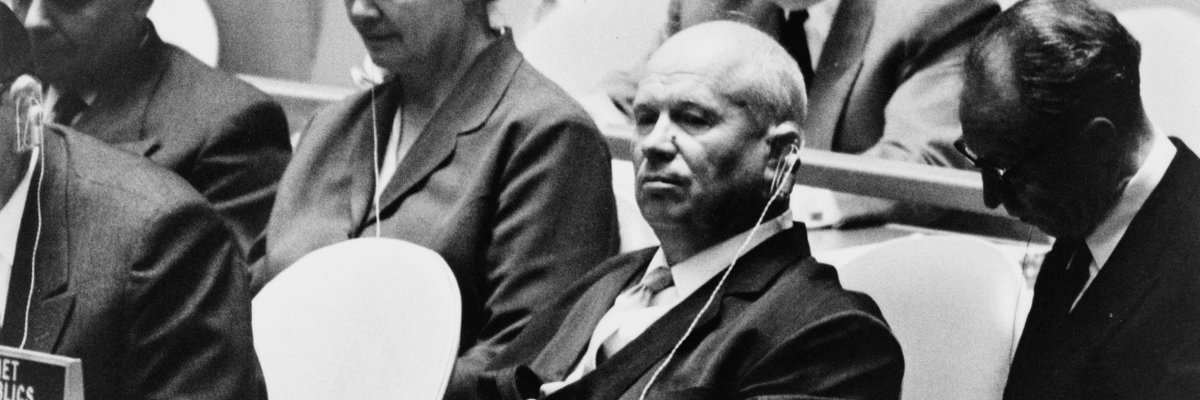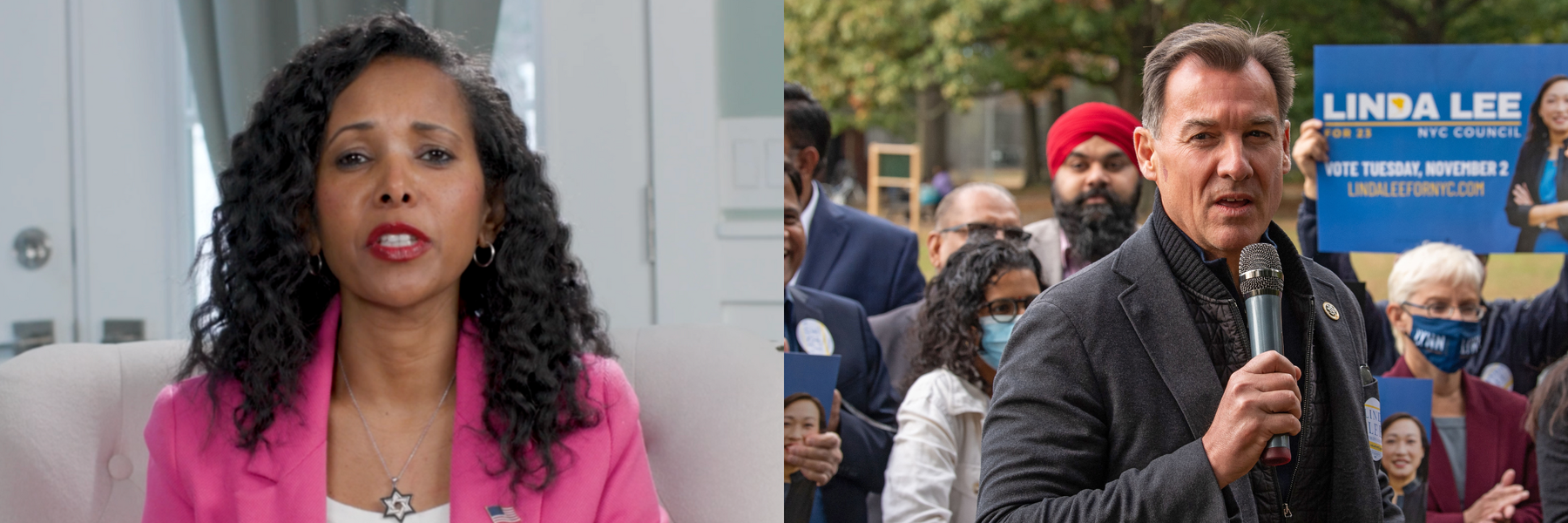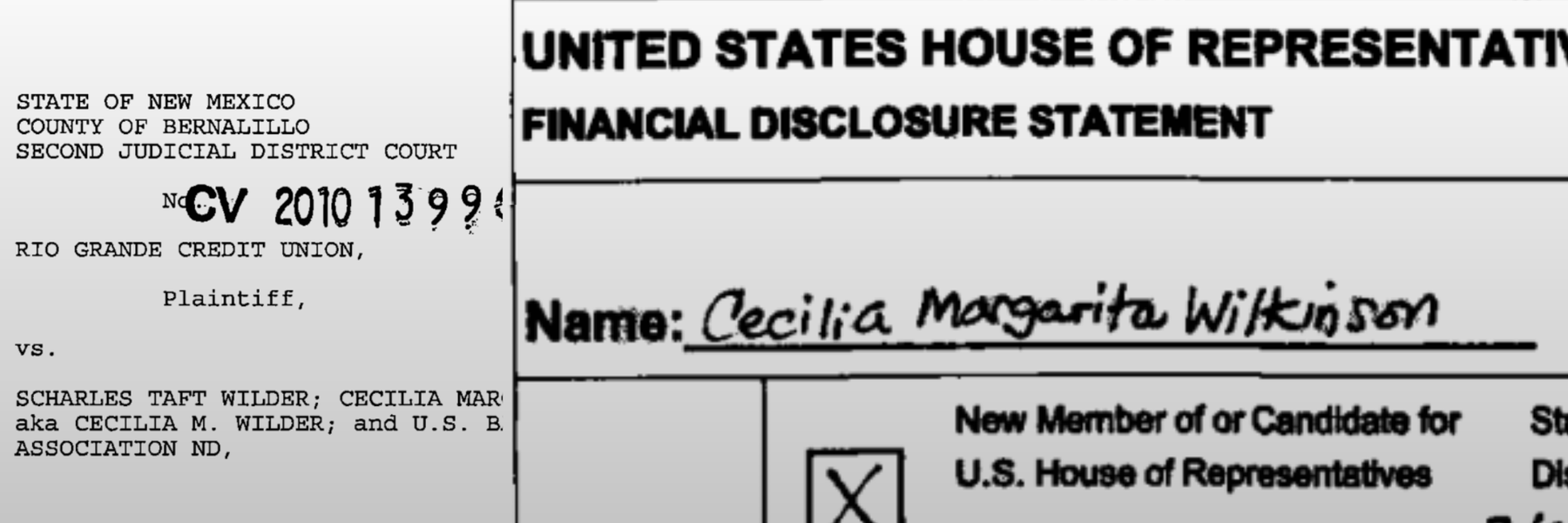A declassified 1964 memo to the Director of the Central Intelligence Agency reveals that the Moscow has been attempting to influence the U.S. Presidential elections since 1964, a full fifty-two years before the election of Donald Trump.
While MuckRock previously reported that the Agency first began systematically tracking Russian/Soviet attempts to influence the elections in 1982, with an eye towards the 1984 election, the 1964 memo discusses the Soviet Union’s first attempts to sway a U.S. election’s outcome through active measures, and how they used game theory to tailor their approach.

Where the 1982 memo discussed the Soviet Union using policy and other machinations to apply pressure that could influence the election, the 1964 memo documents some of the Soviet’s earliest attempts to increase the chance that the candidate who was less hostile to Moscow would win the election. According to the memo, the Soviets initially “seemed generally relaxed about the election” until Senator Barry Goldwater won the Republican nomination. As a result of this, the Soviets took up “a harsher propaganda line” that painted one candidate in a better light.
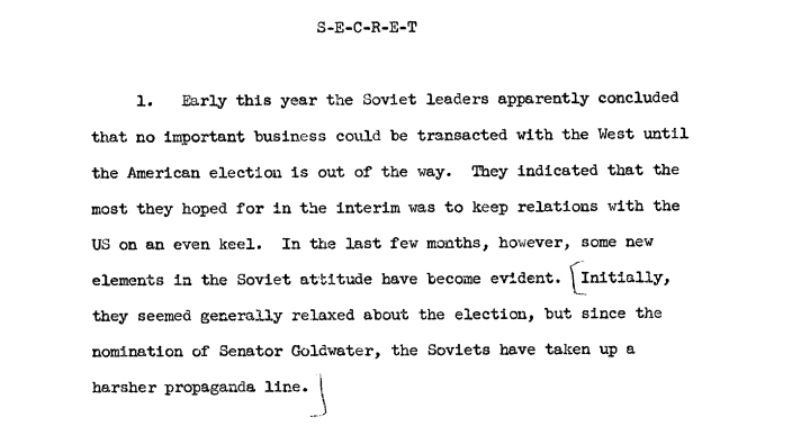
As the CIA memo notes, Soviet propaganda until that point had taken the position that there was “little basic difference between opposing candidates or policies.” The 1964 election was the first time they made “sharp distinctions between the contending parties and policies, and their preference for President.” The Agency noted that their preference seemed to be for Lyndon B. Johnson over Goldwater, apparently based on the Soviet assumption that Goldwater would take a harder line with the Soviet Union than Johnson.
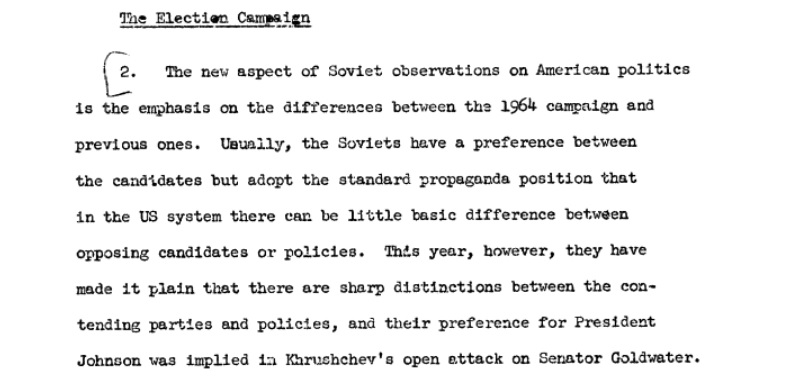
While the Soviets didn’t endorse or defend Johnson, they abstained from criticizing him personally. Contrasting this with “Khrushchev’s open attack on Senator Goldwater,” the Agency concluded that the Soviets had a preference against Goldwater. According to the CIA, the it was Goldwater’s candidacy that the Soviets credited with “the emergence of tense situations, as in Vietnam and Cyprus,” as a result of the “election pressures.” According to the Soviets, the right wing was “fanning chauvinism in its most extreme form.”
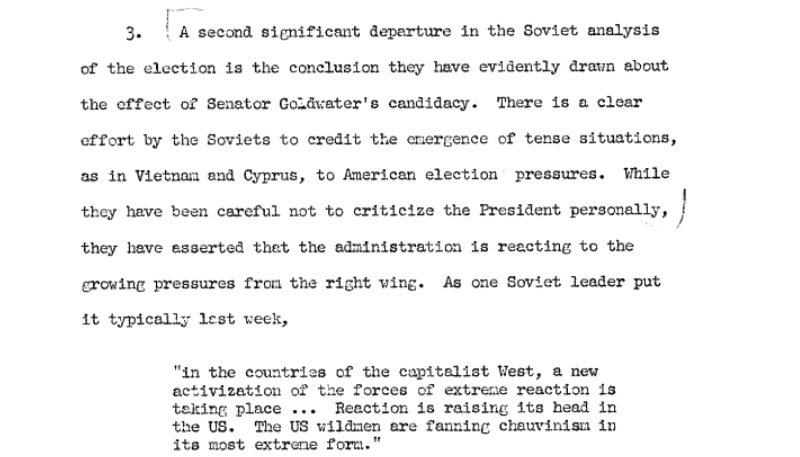
The memo to the CIA Director concluded that the Soviet’s views were authentic and not merely machinations, while noting that the concerns were likely to be temporary. Both the Soviets and the Agency seemed to (correctly) expect Johnson to win the election. According to the Agency, if they were right, and Johnson did win, Khrushchev would hold it up “as a vindication of the USSR’s peaceful coexistence policy and as a rebuff of ‘fascist’ forces.” On the other hand, “if Senator Goldwater is elected, then the Soviet propaganda machine has laid the groundwork for a change of Soviet policy,” likely referring to Khrushchev’s open attacks on Goldwater.
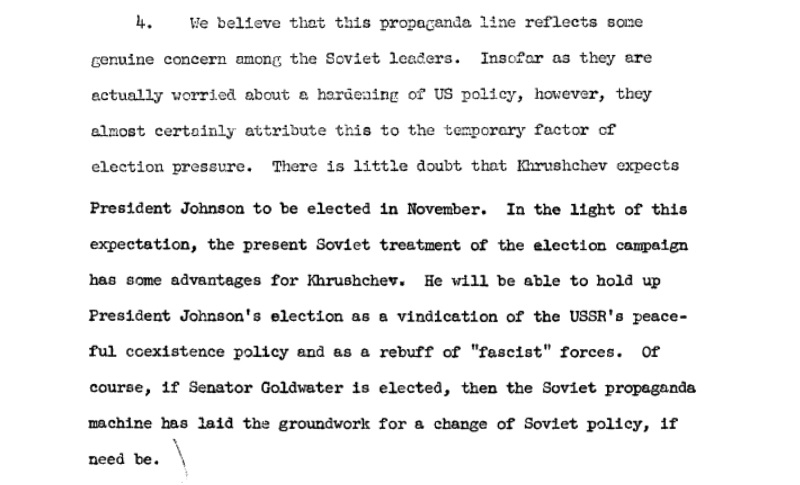
However, the Agency was uncertain exactly what changes in policy the Soviet’s would pursue if Goldwater did win the election.

Regarding the Soviet’s approach to affairs after the election, the Agency seemed to suggest a “wait and see” approach be adopted, predicting gestures and probes from the Soviets to determine the U.S.’s post-election stance on issues. The memo notes that the Soviet’s tactics would depend a great deal on the U.S.’s reaction to their probes and attempts at outreach, though they expected Khrushchev “to stimulate hopes for a further reduction of international tensions” (the Cuban Missile Crisis having taken place just two years before, and the assassination of President John F. Kennedy by Soviet defector Lee Harvey Oswald having taken place just under 11 months prior).

The Agency backed up this conclusion by noting that the Soviet Union didn’t seem to be in a position, either strategically or economically, that allow an “abrupt shift to a rough line,” noting that “there are strong forces” that would seem to preclude this.
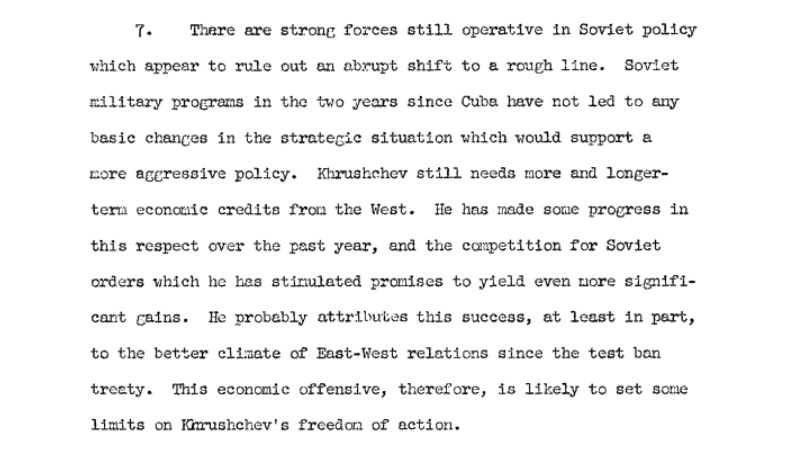
While the Soviet’s initial propaganda offensive regarding U.S. Presidential elections seems quite tame when compared to the events of 2016, they nevertheless began Moscow’s tradition of attempting to influence the outcome of American elections. Combined with the 1982 memo discussing the need to systematically study Soviet active measures as they applied to elections, and noting several suspected attempts to create conditions that would favor one candidate over another, the 1964 memo gives us another important point on the timeline tracking Soviet and Russian attempts to interfer in U.S. elections.
Significantly to anyone looking to understand how Russia chooses one candidate over another, their choice in the 1964 election seems to have been as much about who they didn’t want to win the Presidency as who they did - similar to the 2016 election.
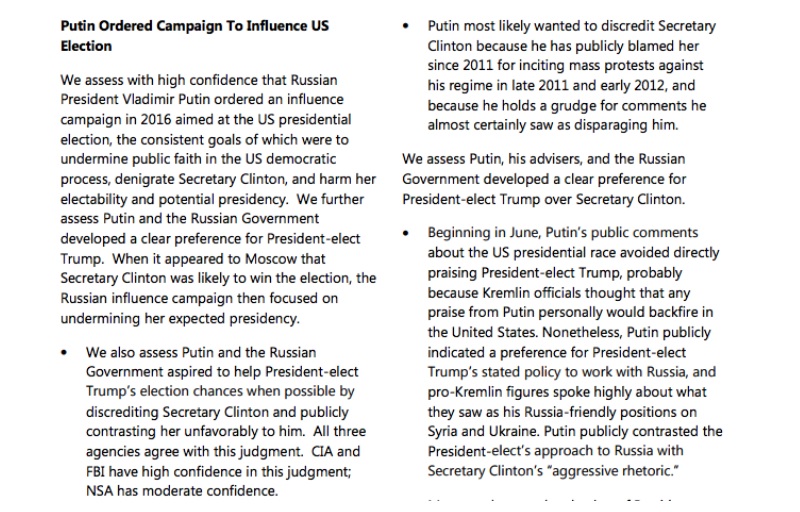
A FOIA request has been filed to learn more about the 1964 election and Soviet attempts to influence it. Until that request is fulfilled, you can read the complete 1964 memo below.
Like Emma Best’s work? Support her on Patreon.
Image via Wikimedia Commons
